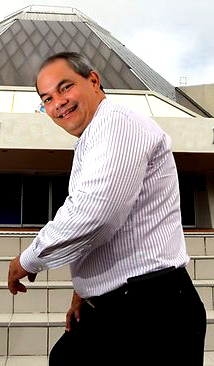City snubs acknowledgement
 Gold Coast City Council has been criticised for not making an acknowledgement of country at its meetings.
Gold Coast City Council has been criticised for not making an acknowledgement of country at its meetings.
Acknowledgements of country are meant to recognise the traditional custodians of the land where a given event is taking place, and sometimes include further acknowledgement that their sovereignty over that land was never ceded.
Reports say that about 60 per cent of Queensland's local councils deliver an acknowledgement of country at the beginning of their ordinary meetings.
However, full council meetings at the City of Gold Coast instead begin with a prayer and the national anthem.
Gold Coast Mayor Tom Tate says that is enough.
“Everything is going great here. [During] citizenship [ceremonies] we do acknowledgement,” he said.
“Council business is council business.
“We do our national anthem and I think it's good enough.”
But Kombumerri traditional owner and project manager of the Guanaba Indigenous Protected Area, Justine Dillon, says the council's choice to exclude the statement is “disappointing”.
“It's not even 60 seconds at the beginning of the meeting,” Ms Dillon said.
“It's just a way to respect that you're on traditional Aboriginal country that has connections and spiritual Dreaming.
“We're just trying to make it the norm in each industry so people make it a part of everyday living.
“We still don't feel acknowledged and our identity feels rejected by our own council at times.
“Despite that, I still work with a lot of lovely people in council in different departments that are supportive.”
There are some dissenters from the council’s official view, with Councillor Glenn Tozer saying he makes the acknowledgement whenever he can.
“On the rare occasion that I chair a [committee] meeting and I'm responsible for the meeting agenda, I start my meeting with an acknowledgement,” he said.
“Each chair can make a choice - I would be supportive of the council taking a different approach.
“It is actually something that elected officials are becoming more familiar with.
“There's no doubt that governments across Australia are changing their practices to acknowledge country appropriately.”








 Print
Print